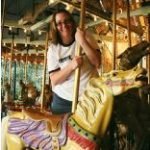
Though he was never directly associated with the coffee industry on his home continent of Africa, Nelson Mandela ”who died today at age 95 ”and his life’s work as an anti-apartheid icon, social visionary, and one of the most important humanitarians in history, is in fact connected not only to the coffee industry but to every industry, such was his impact as a person, a revolutionary, a peace-keeper.
Mandela’s life achievements are a staggering number: he led his country, South Africa, to democracy. He become its first black president. He won the Nobel Peace Prize and raised millions and millions of dollars for humanitarian efforts. His faith in human nature even after the 27 years he spent imprisoned, 15 of them on Robben Island in a spartan cell, allowed one visitor per year, and one letter per six months, is awe-inspiring. “No one is born hating another person because of the color of his skin, or his background, or his religion, he wrote in Long Walk to Freedom. œPeople must learn to hate, and if they can learn to hate, they can be taught to love, for love comes more naturally to the human heart than its opposite.
Ken and I visited Cape Town, South Africa, one year ago this month. We spent time in the bustling capital city of Johannesburg, the spectacular coastal city of Cape Town, and the wilderness surrounding Port Elizabeth. This was after a week spent in Ethiopia visiting coffee farms with the South African brother-and-sister roastery-owning team of Jonathan and Sarah Robinson. We went to South Africa to see Sarah and Jonathan’s company, Bean There, which has roasters and cafes in both Johannesburg and Cape Town.

From Sarah and Jonathan, Ken and I came to understand the deep pride many South African have in their country, from what it has survived, to the grace with which it recovered and continues to recover, to the future of this magically beautiful land. We will go back to South Africa ”we’ve promised each other that.
When our flight from Johannesburg landed in sunny Cape Town, Jonathan insisted that we take the tram to the top of Table Mountain straight away: when the weather is clear, as it was that day, Jonathan said, “You just drop what you’re doing and head to Table Mountain.” So we did.
It was one of ”perhaps the most ”majestic natural settings I’ve ever seen, with striking vistas west and east along the South African coast, the water stretching a deep, marble blue as far as we could see.
Robben Island was out there, where Mandela spent 18 of the 27 years he was imprisoned. It’s only 12 kilometers off the coast of Cape Town, and clearly visible from atop Table Mountain, as well as from countless vantage points in the city.
To imagine Mandela so close and yet so far, so alive in the hearts and minds of South Africans even while away for almost three decades, it’s one of the reasons why there is no place like South Africa. His legacy of morality, kindness, forgiveness, and peace will live on forever ”that was the power of his spirit and message. Still, without him breathing on the same planet as the rest of us, life’s lonelier.
The African National Congress (ANC) issued a statement today, calling Mandela “a colossus.” Referring to him by the name he was called by his countrymen ”Madiba, which is the name of his tribe as well as a reference of great honor ”in his later life, the ANC said in a statement, “Madiba loved South Africa. We recall the strength of his fist punching the air as he stepped out of prison after 27 years; and his sternness during the negotiations for the freedom of our beloved country. We celebrate his ever-present smile, the cheerful Madiba jive, his love for children, and great respect for the women of this country.
“The large African Boabab, who loved Africa as much as he loved South Africa, has fallen. Its trunk and seeds will nourish the earth for decades to come.”

